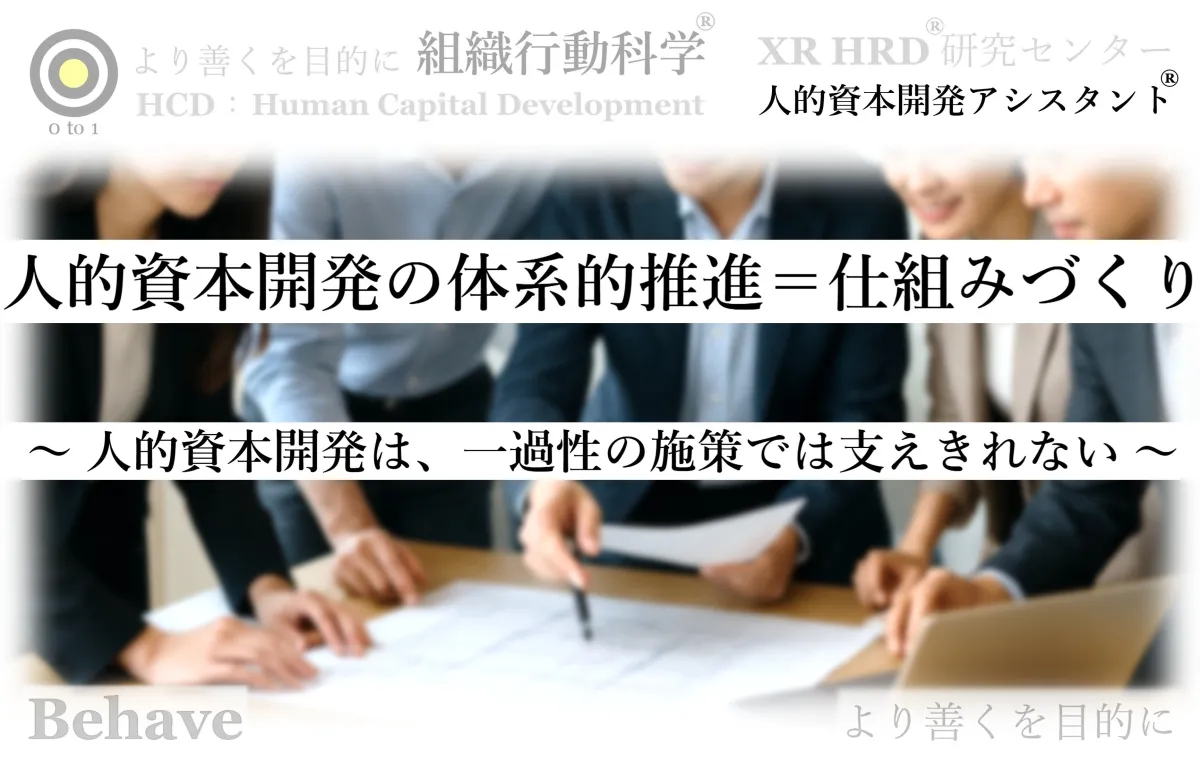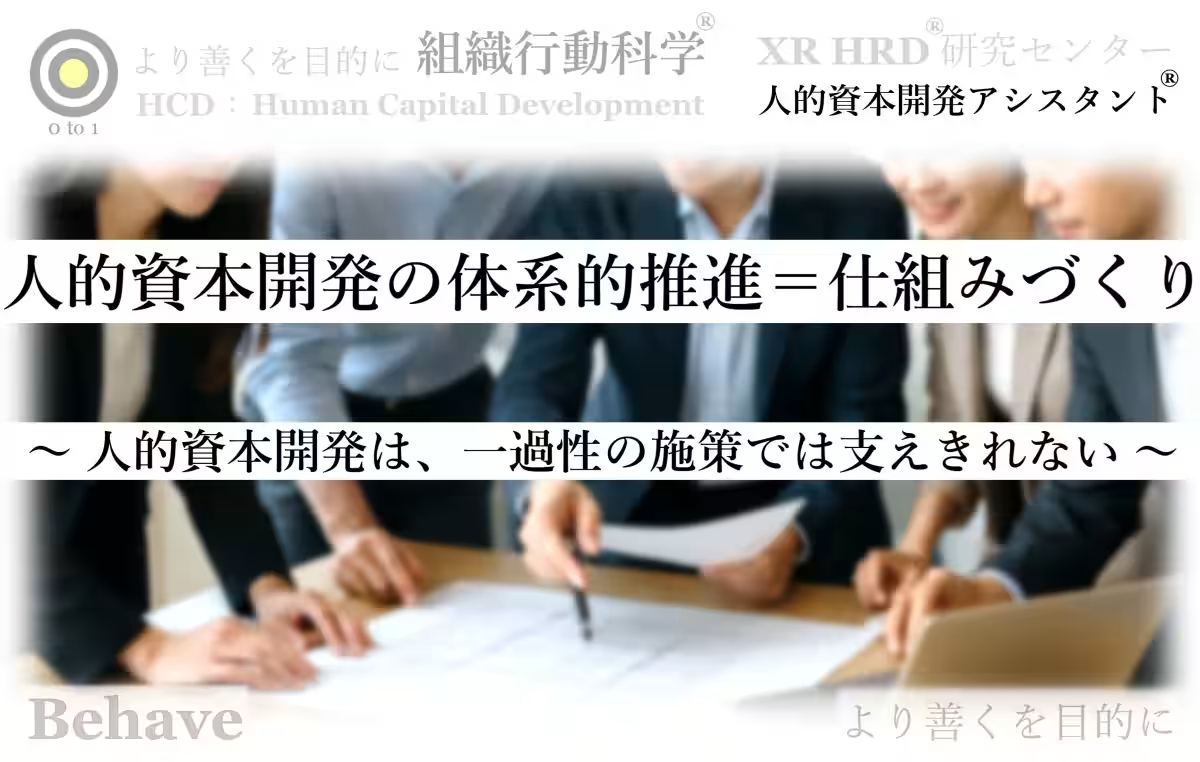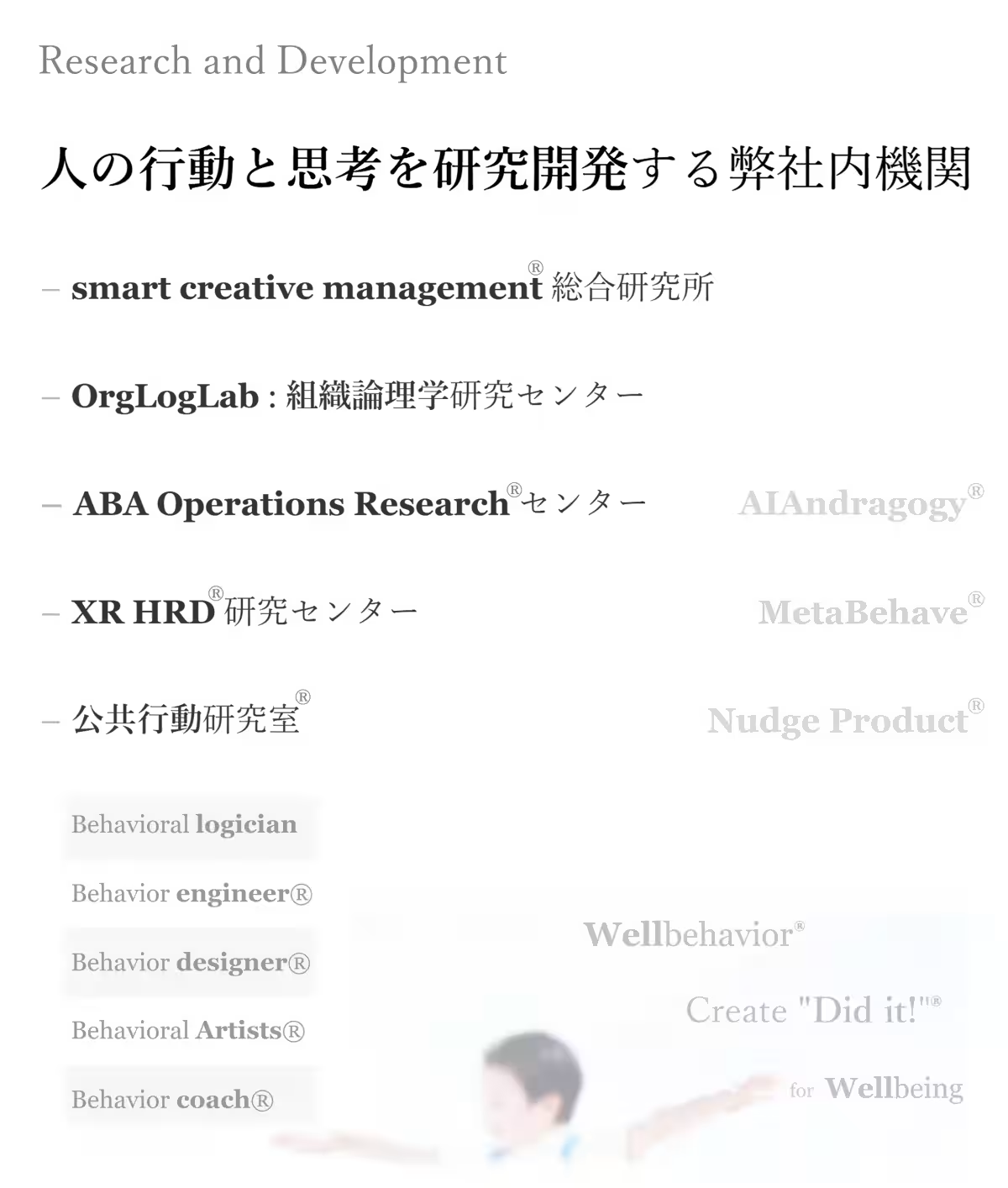

Addressing the Quiet Crisis in Human Capital Development for Organizations
Introduction
In recent years, the discourse around human capital management has intensified. Paradoxically, organizations that have been dedicated to this effort are now quietly losing their competitive edge for the future. This unsettling trend has prompted Request Inc. to propose a solution through their new initiative titled "Systematic Promotion of Human Capital Development: Building Structures."
The Premise of the Proposal
Current businesses often drift towards short-term success, neglecting the necessary cultural evolution and collaboration that sustains long-term relationships with partners. This proposal underscores the importance of refining human capital development by integrating on-the-job training (OJT) and off-the-job training (OFF-JT) into a coherent framework.
The Silent Crisis
Have you ever felt a disconnect between efforts put into training and the overall growth of an organization? Here are a few common symptoms of this unrest:
- - Despite repeated training sessions, on-site thought and behavior remain stagnant.
- - Individual efforts are not translating into collective organizational strength.
- - Changes in personnel reset achievements and progress.
- - Lack of enhancement in partnerships or customer relationships.
- - Business strategies fail to materialize within operational realms.
These scenarios are increasingly common across various organizations, highlighting the need for a shift in focus.
As customer expectations evolve, so too must our methodologies and operational frameworks. The existing approaches anchored in past values are no longer sufficient. To thrive in this dynamic environment, organizations must intentionally systemize their human capital development efforts, fostering sustainable growth and value creation.
The Core Elements of the Proposal
Key ideas underpinning this initiative include three pivotal aspects:
1. Short-term Gains Cannot Sustain Partnerships
Practical experience serves as an invaluable asset; however, merely amassing experience does not cultivate the ability to reassess intentions. This is why distinguishing between OJT and OFF-JT is essential.
2. Infusing Meaning and Intent into Practical Experience
OFF-JT should not be limited to mere training or reflection time. It requires an evolution where job descriptions transform into tools for rediscovery of meaning. Questions like "Who does this support?" and "What are the intentions behind my actions?" stimulate deeper understanding and reconceptualization of experiences.
3. Deliberate Allocation of Efforts
Often perceived as time-consuming or costly, nurturing relationships and investing in mutual growth is crucial. The commitment to not pursue mere short-term outcomes, but rather to support those who share future visions, becomes vital for sustainability and value creation.
Conclusion
Recognizing the existing disconnect between effort and outcome is the first step toward transformation. The time has come for organizations to adopt a developmental culture rather than one focused solely on immediate results. By redefining partnerships, we can nurture a collaborative environment where both parties thrive.
In conclusion, the initiative by Request Inc. emphasizes the pressing need to construct robust systems for human capital development. With potential launch date set for April 28, 2025, this plan not only seeks to address the challenges at hand but also aims at fostering a sustainable future for organizations navigating the complex landscapes ahead.
For further insights, download the full proposal here.
Company Overview
Request Inc., based in Shinjuku, Tokyo, has positioned itself as a leader in organizational behavior science, employing data from over 336,000 individuals to facilitate human capital development across more than 930 companies.
Contact Us
For inquiries, reach out to the Human Capital Development XR HRD® Team at Request Inc.:
Email: [email protected]
Visit our corporate site: Request Inc.






Topics Other)










【About Using Articles】
You can freely use the title and article content by linking to the page where the article is posted.
※ Images cannot be used.
【About Links】
Links are free to use.